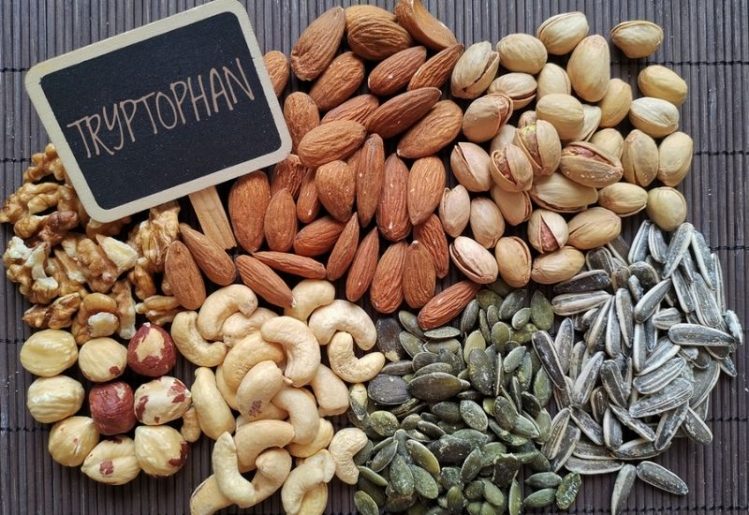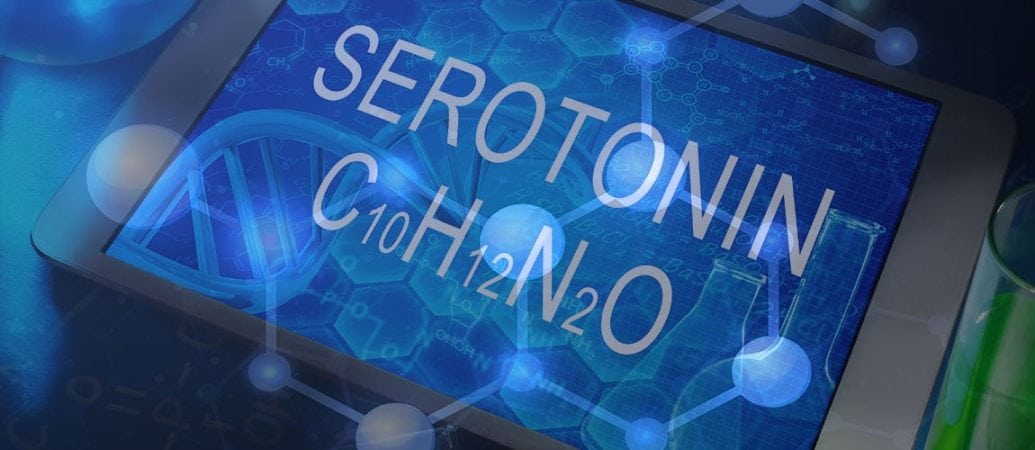Insufficient Tryptophan Alters Gut Microbiome, Increases Inflammation
Tryptophan is an essential amino acid. Associated with serotonin production, and thereby linked to mood, as well as connected to energy levels and immune system function, new research finds that insufficient tryptophan can impact gut microbiome and may significantly increase inflammation.
Chronic inflammation has been shown to increase the risk of numerous diseases, including those among the leading causes of death. The impact of low tryptophan levels, according to the new research, is greater as we age.
An Essential Amino Acid
 Found in such foods as turkey and other poultry, eggs, milk, salmon and other fatty fish, green leafy vegetables, like spinach, walnuts, butternut squash seeds and oat bran, tryptophan is one of the essential amino acids. It plays a vital role in the production of serotonin, impacting mood, cognitive function, sleep quality and appetite.
Found in such foods as turkey and other poultry, eggs, milk, salmon and other fatty fish, green leafy vegetables, like spinach, walnuts, butternut squash seeds and oat bran, tryptophan is one of the essential amino acids. It plays a vital role in the production of serotonin, impacting mood, cognitive function, sleep quality and appetite.
Tryptophan also aids in the production of melatonin, another way it impacts sleep quality. Both tryptophan and melatonin impact immune function and aging. And, according to Medical College of Georgia Department of Medicine researchers, low tryptophan levels can actually change the gut microbiome and lead to increased inflammation, raising disease risk.
Insufficient Tryptophan Linked to Gut Microbiome Changes, Inflammation
The term gut microbiome refers to the billions upon billions of microorganisms, including bacteria, fungi and viruses, that reside in the gut or the cecum of the large intestine. The gut microbiome plays a huge part in our overall health and well-being in near countless ways. In other words, our gut microbiome is thoroughly and completely entwined with the function and health of our bodies and our minds. Thus, when something impacts the health of the gut microbiome, we need to pay attention.
According to a study conducted by Medical College of Georgia Department of Medicine researchers and published in the International Journal of Molecular Sciences, not obtaining enough tryptophan from the daily diet on a regular basic can do exactly that – impact the health and function of the gut microbiome. The metabolites that are produced by tryptophan affect every organ in the body, according to the researchers. When tryptophan levels are consistently too low, the researchers found, it can actually change the bacteria that uses tryptophan, altering their ability to correctly or efficiently make use of the amino acid in the future.
The researchers also found that the sorts of changes in the gut microbiome associated with insufficient tryptophan levels were linked with an increase of inflammation. Science has come to understand the deep connections between inflammation and diseases processes, linking chronic inflammation to a wide range of very common diseases and to the leading disease-related causes of death. These include cancer, cardiovascular diseases and diabetes. Chronic inflammation can have a negative impact on immune function and can contribute to autoimmune disorders.
Poor Diet Most Common Cause of Tryptophan Deficiency
The flat out, simple truth is that what has become the standard Western diet – high in fat, sodium, sugar, calories and chemicals and low in nutrients and fiber – is unhealthy, leading to disease and premature death for many. Real, whole foods in the correct balance and at the right time of day offer the proven key to better health.
A poor or unbalanced diet is the most common cause of tryptophan deficiency. Symptoms of being deficient in this critically essential amino acid include appetite changes, such as carbohydrate cravings or significantly reduced appetite, increased anxiety levels, feelings of depression and difficulty sleeping.
Because some of the richest and most well-known sources of dietary tryptophan are animal products, such as poultry, milk and fatty fish, vegetarians and vegans can have a bit more trouble keeping their tryptophan levels where they should be. However, with a dietary focus on whole foods and good planning, deficiencies can easily be avoided. There are plenty of plant-based tryptophan sources and all are excellent additions to the daily diet.
 Nuts and seeds are a valuable source of this important amino acid. Tryptophan rich vegetables include spinach and other dark green leafy vegetables, beans, cruciferous vegetables, including cauliflower, broccoli, cabbage and Brussels sprouts, potatoes, cucumbers and mushrooms. Bananas are another good dietary source of tryptophan, as is quinoa.
Nuts and seeds are a valuable source of this important amino acid. Tryptophan rich vegetables include spinach and other dark green leafy vegetables, beans, cruciferous vegetables, including cauliflower, broccoli, cabbage and Brussels sprouts, potatoes, cucumbers and mushrooms. Bananas are another good dietary source of tryptophan, as is quinoa.
Eat Well for Sufficient Tryptophan and Healthy Gut Microbiome
Your diet is key to achieving good health, as well as to combating insufficient tryptophan and promoting a healthy gut microbiome. Reduce, better yet eliminate, ultra-processed foods from your diet, focusing instead on real, whole food options. Plan your meals with nutrition in mind, making sure to consume the right combinations of food to ensure complete nutrition on a daily basis. Give consideration to meal timing when planning the daily diet.
Naturally, these sorts of changes, particularly if you are shifting from a poor diet, such as a diet heavily based on ultra-processed convenience foods, can take time to fully incorporate into your day-today life. In these types of circumstances, a carefully chosen tryptophan supplement can help you to bridge the gap while you develop better eating habits.




